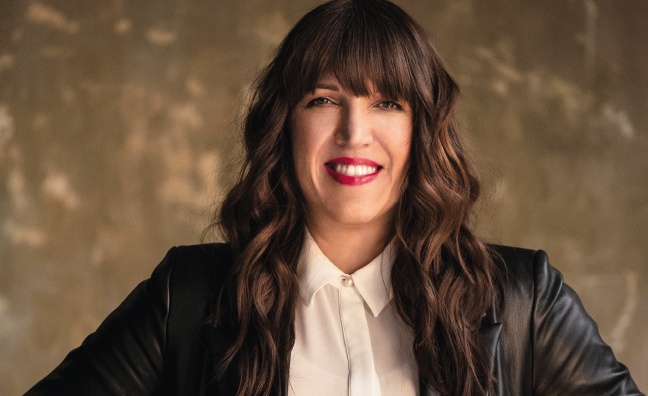TuneCore CEO Andrea Gleeson has spoken to Music Week about her mission for equality across the music business.
Gleeson has commissioned three annual MIDiA Be The Change studies to identify why independent female creators remain underrepresented, raise awareness of their challenges and incite change.
Her work led to her being named International Woman Of The Year at last year's Music Week Women In Music Awards, where she said from the stage: “I invite you all to continue being part of the change. We all have a role to play in making our field more diverse.”
Gleeson, who worked in eCommerce prior to joining Believe-owned TuneCore in 2015, said her previous experience inspired her to actively help make a difference.
“When I heard in literally my first month with the business that only 28% of our artists at the time were women, it was striking to me," said Gleeson. "That was very much in line with the representation in the top charting music on the Hot 100, which has been around 20% to 30% for over a decade. It made me scratch my head a little bit, because you can understand how there could be an ecosystem preventing more women from being in the top charting music. But for an open platform like TuneCore - where there is no gatekeeper, but the percentages were very similar - that made no sense."
There were many studies out there about the gender gap, but there were no comprehensive studies about why it was happening
Andreea Gleeson
Speaking in the Music Week Interview, she continued: “I came from a career in retail, where there are women at all levels of an organisation, and I almost didn’t notice initially that [in the music business] I was often the only woman in the room. That didn’t sit well with me, but I didn’t do anything about it in a meaningful way until I started working for Denis Ladegaillerie, my boss and the head of Believe. The number one OKR [objective and key result] he gave me was to help drive gender parity within our company, but also in the wider music industry.
"There were many studies out there about the gender gap, but there were no comprehensive studies about why it was happening. And you can’t really fix something unless you understand why, so then came the Be The Change study."
Launched in 2021, the report drew from first-hand accounts, as well as survey results, to delve into the challenging journeys that many creators face, such as direct forms of discrimination, endemic issues of under-representation and unconscious bias, in addition to exploring issues that affect creators’ confidence.
"We reached out to MIDiA, and in the first year we focused on creators," she said. "The next year, we added women executives, and also men, to understand the differences. And last year we expanded the survey to make it available in 13 languages. We had over 1,600 respondents across 109 countries and got a much more global perspective.”
Gleeson said that while "there are things in the industry that are just broken and discrimination continues to be very high," she was satisfied that some progress was being made. Nonetheless, she suggested the response to the Be The Change question "Do you feel there is discrimination in the music industry?" was telling.
You've got to set goals to help keep your foot to the fire
Andreea Gleeson
"Seventy-three per cent of women and 83% of non-binary individuals said yes, while only 39% of men said the same," she said. "So if men are the ones predominantly in leadership roles, and we know that they are - right now, only 14% of top executive roles in the music industry are women - how are you going to change something that you don’t know is a problem? Just because it’s not happening to you doesn’t mean it’s not happening, and that’s why this study is so important.
"Another interesting insight is that particular response skewed far higher in Europe and the US than in developing markets where people are more digitally-leaning and are not seeing these systemic issues around discrimination. That shows that we have the most work to do.”
Gleeson also serves as a US ambassador for Keychange, the international initiative for gender equity in the music industry, which she credited as "a great initiative that is trying to build change at large scale". And she explained the steps TuneCore has made to ensure its own house is in order.
"For TuneCore and Believe, we set the goal of getting to 42% women across all levels of our company," she said. "That was our goal for last year and we missed it by two percentage points at 40%. But you've got to set goals to help keep your foot to the fire. Some companies were like, ‘We’re already doing it, we don't need to talk about it.’ But no, you've got to show you're doing it because it will show your peer group that they should be doing it, too. You're helping drive wider change.”









